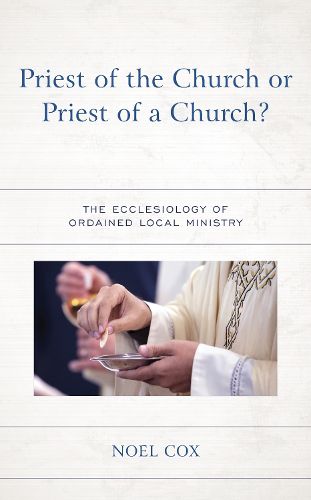Readings Newsletter
Become a Readings Member to make your shopping experience even easier.
Sign in or sign up for free!
You’re not far away from qualifying for FREE standard shipping within Australia
You’ve qualified for FREE standard shipping within Australia
The cart is loading…






The development of new forms of ministry, lay and ordained, has included worker-priests, now found in the Anglican Communion in a related form variously called Self-Supporting Ministry (SSM) or Non-Stipendiary Ministry (NSM). This book focuses on one of the most recent developments, the creation of Ordained Local Ministry. After chapters that consider preliminary questions of the nature of ministry, such as authority in the church and Holy Orders, Noel Cox argues that the crucial distinction between these and other forms of ministry is that the Ordained Local Minister (OLM) is overtly ordained specifically for a given locality (variously defined); they are a deacon or priest for a specific church, parish, benefice, or deanery, rather than of the universal church. Their introduction inevitably raises difficult ecclesiological questions, which Cox examines.
$9.00 standard shipping within Australia
FREE standard shipping within Australia for orders over $100.00
Express & International shipping calculated at checkout
The development of new forms of ministry, lay and ordained, has included worker-priests, now found in the Anglican Communion in a related form variously called Self-Supporting Ministry (SSM) or Non-Stipendiary Ministry (NSM). This book focuses on one of the most recent developments, the creation of Ordained Local Ministry. After chapters that consider preliminary questions of the nature of ministry, such as authority in the church and Holy Orders, Noel Cox argues that the crucial distinction between these and other forms of ministry is that the Ordained Local Minister (OLM) is overtly ordained specifically for a given locality (variously defined); they are a deacon or priest for a specific church, parish, benefice, or deanery, rather than of the universal church. Their introduction inevitably raises difficult ecclesiological questions, which Cox examines.